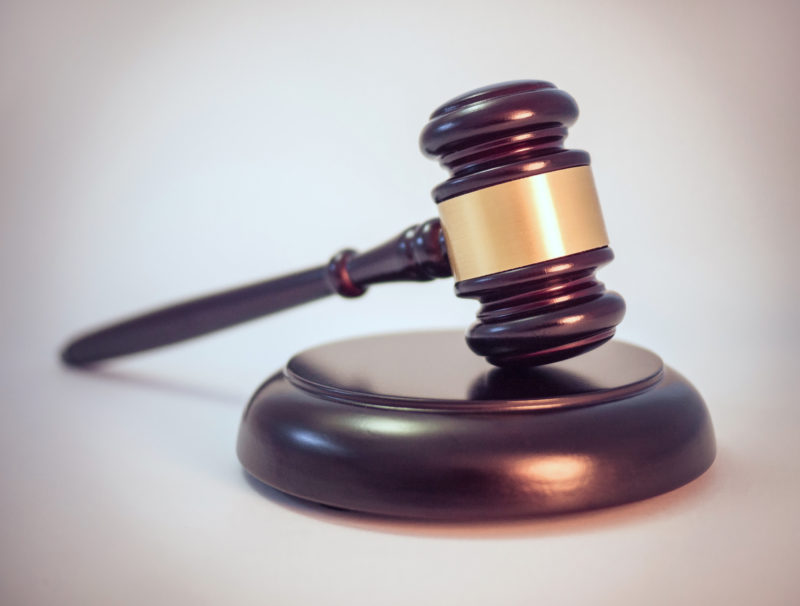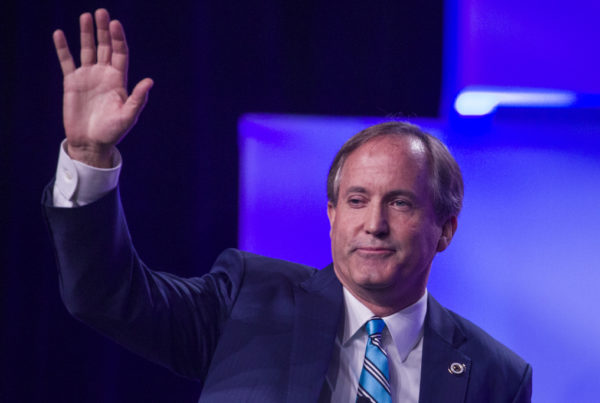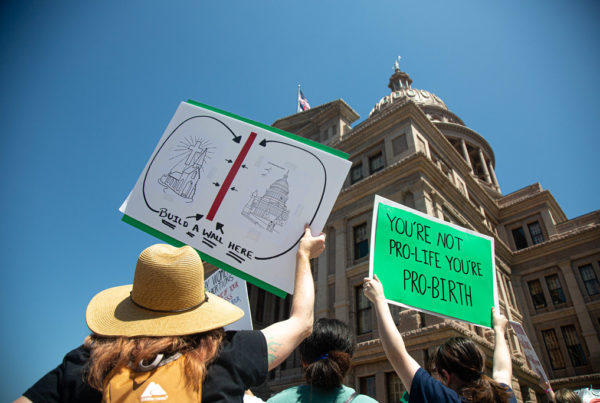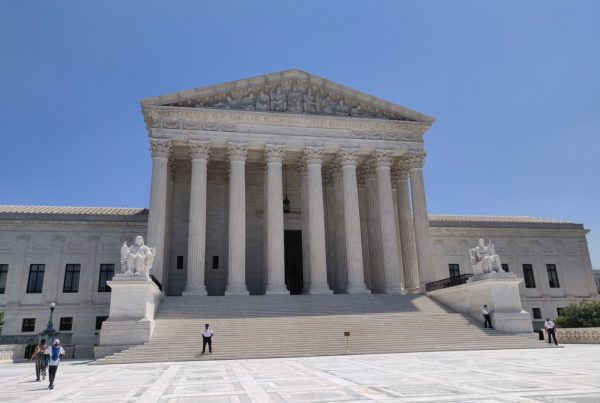The U.S. Supreme Court ruled Thursday that there are limits to the EPA’s ability to regulate carbon emissions from power plants. The decision will make it harder for the Biden Administration to make good on a pledge to cut greenhouse gas emissions in half by 2030.
Where does this ruling leave the U.S. in the fight against climate change and what are the implications for Texas? The Texas Standard spoke with Felix Mormann, professor of law at Texas A&M University. He focuses on energy/environmental law and climate change. He said that though the ball is now in Congress’ court to act on cutting down greenhouse gas emissions the EPA still has other ways to affect change. Listen to the interview above or read the transcript below.
This transcript has been edited lightly for clarity:
Texas Standard: What exactly do you see this decision meaning for the energy industry and for that matter, for climate change?
It’s not great news. But to be honest, as we were all anxiously awaiting the decision, I think many of us expected worse – worse in the sense that the EPA might get handcuffed even more than the court actually did.
The court seemed to be concerned about this issue of whether Congress actually delegated this authority completely to the agency or whether or not the agency actually had the authority to do it under its original mandate. How do you see it?
So the trouble with any of these decisions is if you want government to be effective, you need to give government some discretion, some latitude. And that’s, by and large, what Congress does when it legislate. The statutes that we have today have been – many of them, such as the Clean Air Act, – around for five, six decades. And times change. So in order for these statutes not to become obsolete, there has to be some give. There has to be some flexibility, some delegation where Congress says, ‘I don’t need to revisit all of this time and again.’
Back when the Clean Air Act was written, climate change wasn’t on anybody’s radar. Enter delegation – essentially this entrenchment of government agencies to say, you know best what’s right. And for the longest time, courts have deferred to agencies. We speak here of judicial deference that acknowledges that EPA is staffed by and large with environmental experts, whether they’re engineers, whether they’re lawyers, whether they’re scientists. These are the ones that you want resolving these questions.
But what does this mean for U.S. treaty obligations, for example, for its ability to fight back on climate change.
I’d say the U.S.’s international allies are not going to be happy with this decision because it severely hampered the U.S. ability to achieve the commitments made under the Paris Climate Agreement, for example.
If the Biden administration wants to try to achieve its greenhouse emission goals in the next five years, could it not, say, get Congress to make an explicit delegation of authority that would be in compliance with the ruling on Thursday?
Absolutely. And of course, that is what the Supreme Court officially does here. It passes the baton on to Congress, says, ‘hey, if this is indeed what you want EPA to do, then all you Congress have to do is speak up and say as much.’
Of course there’s that question, but then there’s the issue of what can the EPA itself do at this juncture? How do you see that?
I think this decision leaves the EPA quite a bit of latitude. For example, some fear that the Supreme Court might completely take away EPA’s ability to regulate greenhouse gases. Some of the submissions to the Supreme Court had asked for as much. That didn’t happen here. It’s also been clear that under Section 111, the pertinent provision [of the Clean Air Act] EPA can regulate greenhouse gases from power plants. But what it can’t do is essentially prioritize one type of generation technology over another. That went too far. But of course, that is pretty far along the spectrum. So I think beyond heat rate improvements, which was what the Affordable Clean Energy Plan mandated, we can still do a lot more stuff. And it’ll be interesting to see how daring, how risk averse or risk taking EPA will be during the next iteration of this kind of rule.
Does this have any implications? I’m thinking of Texas energy. I’m thinking of also eyes on the power grid. With the state’s reliance on gas, does this make it easier to develop more gas or in fact, greener options in the state?
I think there’s multiple things going on here for Texas because, of course, we export a lot of fossil fuels. And so to the extent that other states want to continue burning those fossil fuels, this might be good news for the Texas economy. As far as the power grid specifically is concerned. I think it’s far less of an issue. Coal is on its way out. The previous administration tried very hard to revive coal fired power plants, to revive the coal sector. And for the most part, the utilities that operate these power plants are already moving in a different direction. That’s largely a result of changing economics, changing realities from the business perspective, where natural gas had long been outcompeting when compared to coal. And by the way, these days it’s the same with wind and solar as we’ve seen. So I don’t know that this is going to usher in any dramatic changes in the way the Texas grid or really any other grid in the United States is managed and is fueled.















